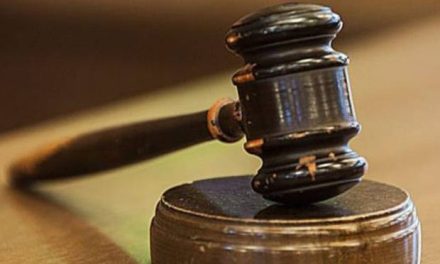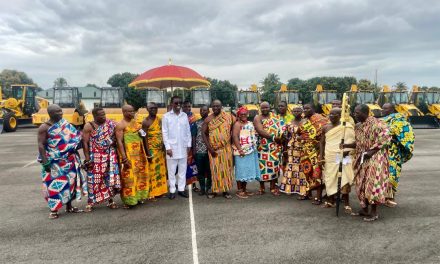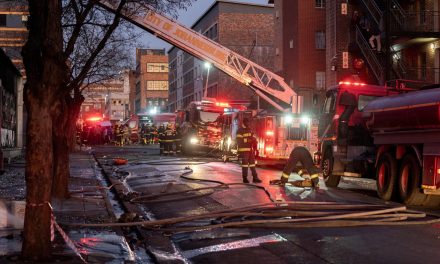
First batch of volunteers trained to combat wildfires3 min read
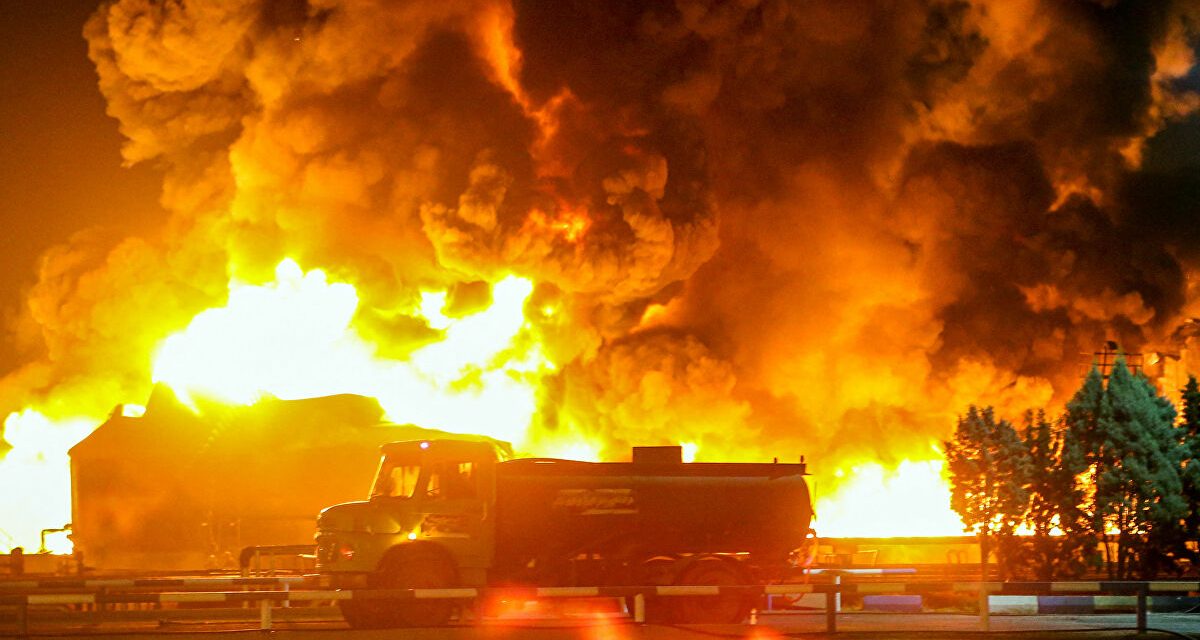
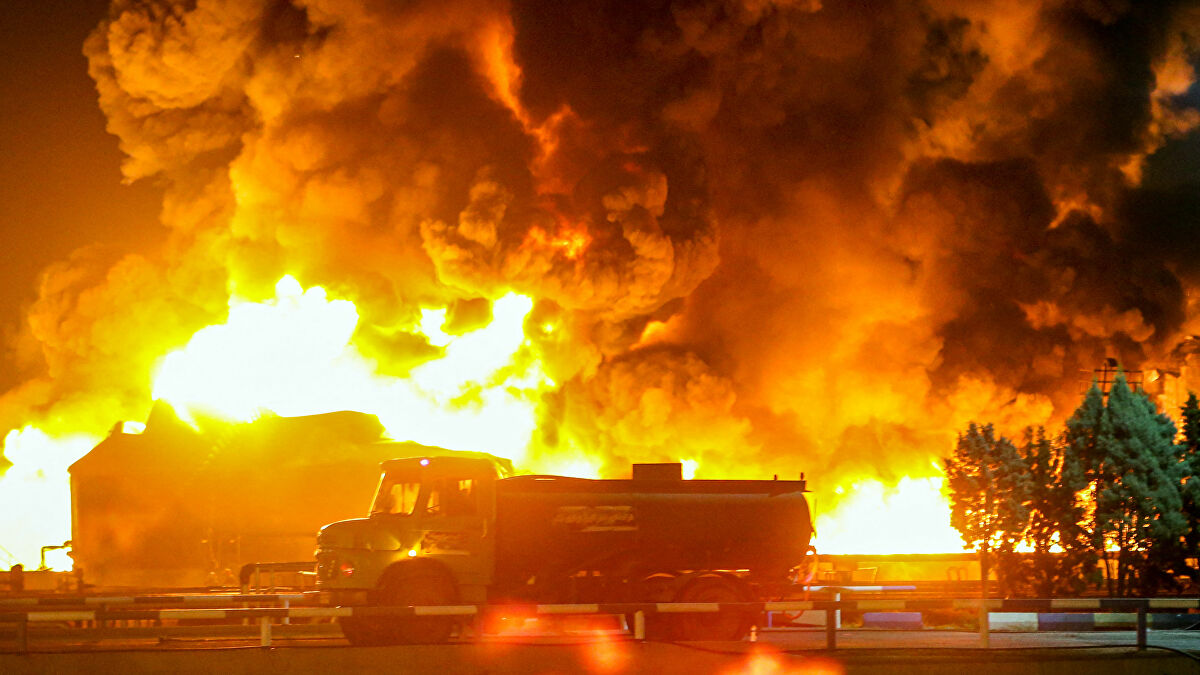
The World Economic Forum in 2021 estimated that wildfires cost $50 billion globally per year and emit 6450 tonnes of Carbon dioxide into the atmosphere.
In Ghana, the transition landscape is one of the most wildfire-prone areas, leading to invaluable loss of farmlands and biodiversity.
To minimize this menace, Ghana, EcoCare Ghana and Tropenbos Ghana with support from the European Union have collaborated with the Ghana National Fire Service to train about 180 community members from 3 districts in the transition landscape to serve as the first respondents to fire prevention, monitoring and control.
The first batch of fire volunteers squad was inaugurated on Wednesday, January 25 and equipped with basic fire-fighting tools to aid their work.
Speaking at the inauguration, the Co-founder and Managing Campaigner for EcoCare Ghana, Obed Owusu Addai, stated that it was important to train and equip community members on wildfire management to protect EcoCare Ghana and Tropenbos Ghana’s landscape restoration efforts and enhance food security.
He said through the European Union-funded LEAN Project, the two organisations have invested heavily in tree planting and supported farmers to adopt climate-smart agriculture practices across the landscape and would be catastrophic if the gains made are lost to indiscriminate bush-burning.
He noted with regret that, despite the constant education, bushfires are still rampant in the landscape.
He added that the incidents have contributed to biodiversity loss, reduced soil fertility and contributed to poverty.
He advised the fire volunteer squads and stakeholders to increase education in their communities on the impacts of indiscriminate bush burning and support the fire services to carry out their mandate in curbing wildfires.
The Fire Safety Officer at Bono East Regional Fire Service, Imoro Ibrahim, acknowledged that the Ghana National Fire Service needs to collaborate with community members to end the menace of wildfires.
He added that there have been several attempts to set up fire volunteer squads in the landscape, however, due to limited resources they haven’t been able to equip them to work effectively.
He was optimistic that the support given to the volunteers through the LEAN Project will go a long way to help combat wildfires and reduce their destructive impact.
The Deputy Bono East Regional Forestry Commission Director, Rev. Obour-Wiredu, reiterated the need for stakeholders in the transition landscape to collaborate.
He cautioned farmers within the landscape to protect the environment against wildfires to safeguard food security for the country.
The training of the fire volunteer squad is part of the Landscapes and Environmental Agility across the Nation (LEAN) Project.
The four-year project is funded by the European Union’s flagship GCA+ initiative that aims to conserve biodiversity, build climate resilience, reduce emissions from land-use changes and help smallholder farmers improve their livelihoods.
The project is being implemented in Ghana by a consortium of four partners: Rainforest Alliance in the High Forest Zone, World Vision Ghana in the Savannah and Tropenbos Ghana and EcoCare Ghana in the transition landscape respectively.
The trained fire volunteers were selected from 15 communities in the Techiman Municipal and Offinso North and South Districts.






